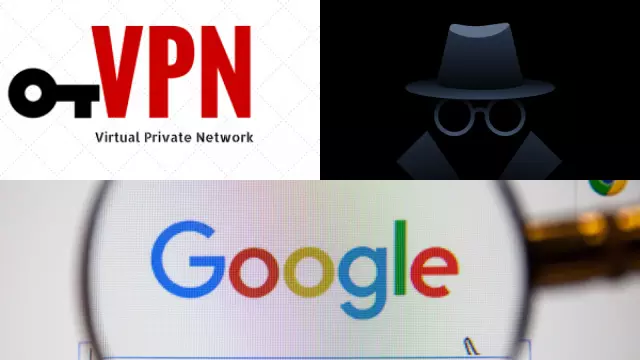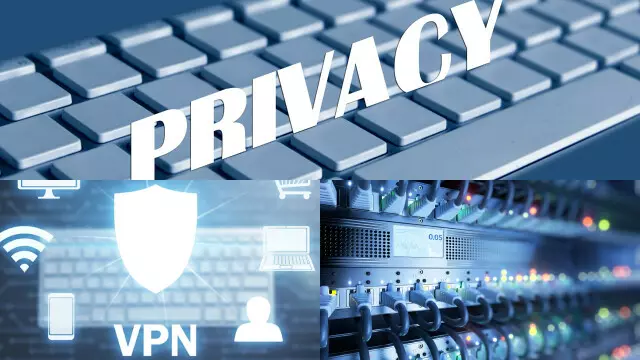The Importance of Protecting Your Online Privacy and Security
In today’s connected world, protecting your online privacy and security has never been more important. With so much of our lives taking place online, it’s critical to take steps to protect our personal information, sensitive data, and online privacy.
There are many threats to online privacy and security, including cybercrime, identity theft, and online tracking by advertisers and other third-party organizations. By using tools like VPNs and encrypted messaging apps, you can reduce the risk of these threats and safeguard your online privacy and security.

In addition to using these tools, it’s also important to be mindful of the information you share online and to use strong passwords and two-factor authentication whenever possible. By taking these simple steps, you can help ensure that your online privacy and security are protected, and that you can enjoy a more secure online experience.
Understanding Private Browsing and its Limitations
Private browsing is a feature that’s available in most modern web browsers, and it’s designed to protect your online privacy by preventing your browsing history, search history, and temporary files from being saved. When you use private browsing, your browser will create a temporary session that’s isolated from your regular browsing sessions.
While private browsing can be a useful tool for protecting your online privacy, it has some limitations that are important to understand. For example, private browsing does not protect you from online tracking by advertisers and other third-party organizations. It also does not protect you from viruses, malware, or other online threats.
Additionally, private browsing does not protect you from your internet service provider or your employer, who may still be able to see the websites you visit and the data you transmit. And if you use a shared computer or device, the next person who uses it will still be able to see your private browsing sessions.
So while private browsing can be a useful tool for protecting your online privacy, it’s important to understand its limitations and to use it in conjunction with other privacy and security tools, such as VPNs and encrypted messaging apps, to enhance your online privacy and security.
How a VPN Can Help Hide Your Search History
Your search history can reveal a lot about you, including your interests, hobbies, and even your personal beliefs and opinions. This information can be valuable to advertisers, governments, and other third-party organizations, and it can be used to track your online activities and target you with ads or other unwanted content.One way to protect your search history and hide your online activities is by using a VPN, or Virtual Private Network. A VPN creates an encrypted tunnel between your device and the internet, which makes it much more difficult for anyone to see what you’re doing online.

When you use a VPN, all of your online traffic is routed through the VPN server, and your IP address is masked, making it much harder for anyone to track your online activities or see what you’re searching for. Additionally, a VPN can help protect you from online tracking by advertisers and other third-party organizations, and it can also help you access websites and online content that might be blocked or restricted in your area.
Encryption and Data Protection with a VPN
Encryption is the process of encoding information so that it can only be accessed by authorized individuals. When it comes to online privacy and security, encryption is a critical tool for protecting sensitive information and personal data.
A VPN, or Virtual Private Network, uses encryption to create an encrypted tunnel between your device and the internet. This encrypted tunnel makes it much more difficult for anyone to intercept or access your online data, including your passwords, financial information, and other sensitive information.
With a VPN, all of your online traffic is routed through the VPN server, which encrypts the data before it’s transmitted over the internet. This encryption helps to protect your data from cyber-attacks, hackers, and other online threats, as well as from surveillance and tracking by governments and other third-party organizations.
Additionally, a VPN can help to protect your online privacy by masking your IP address, making it much harder for anyone to track your online activities or see where you’re located. So if you’re looking for a way to protect your online data and ensure that your online activities remain private and secure, consider using a VPN.
Hiding Your IP Address with a VPN
Your IP address is like a digital fingerprint that can reveal a lot of information about you, including your location, internet service provider, and more. When you browse the web, your IP address is sent to every website you visit, and it can be used to track your online activities.
One of the most important benefits of using a VPN is that it allows you to hide your IP address, making it much more difficult for anyone to track your online activities.

When you connect to a VPN server, your device’s internet traffic is routed through the VPN server. This means that when you visit a website, it will see the IP address of the VPN server, not your actual IP address.
By hiding your IP address, a VPN can help you maintain your privacy and security online. It can also help you bypass geographical restrictions and censorship, as well as access geo-restricted content.
Is Private Browsing Really Secure?
Private browsing, also known as incognito mode, is a feature offered by most web browsers that promises to keep your online activities private. However, it is important to note that private browsing is not as secure as it may seem.
While private browsing does not save your browsing history, temporary files, or cookies, it does not hide your IP address or encrypt your online traffic. This means that your internet service provider and government agencies can still see what you are doing online, and websites can still collect information about you using tracking technologies such as cookies.
Additionally, private browsing does not protect you from malware, phishing scams, or other online threats. It also does not prevent websites from logging your data, and it does not protect you from data breaches or hacking attempts.
In conclusion, while private browsing can provide some privacy benefits, it is not a substitute for a secure and encrypted connection, such as a virtual private network (VPN). To truly protect your online privacy and security, it is best to use a combination of private browsing and a VPN.
Private Browsing and Wi-Fi Sniffing
Private browsing is a feature offered by most web browsers that promises to keep your online activities private. While it may prevent your browsing history, temporary files, and cookies from being saved, it does not necessarily protect you from Wi-Fi sniffing.
Wi-Fi sniffing is the act of intercepting and capturing data transmitted over a wireless network, such as Wi-Fi hotspots. This means that anyone on the same network as you can potentially see what you are doing online, even if you are using private browsing.
For example, if you are using a public Wi-Fi network, such as at a coffee shop or airport, a malicious attacker could use Wi-Fi sniffing tools to monitor your online activities and steal sensitive information, such as passwords and credit card numbers.
To protect yourself from Wi-Fi sniffing, it is recommended to avoid using public Wi-Fi networks, especially for sensitive activities, and to use a virtual private network (VPN). A VPN encrypts your online traffic, making it much harder for anyone, including Wi-Fi sniffers, to intercept and read your data.
In conclusion, while private browsing can provide some privacy benefits, it is not enough to protect you from all online threats, including Wi-Fi sniffing. To ensure the security of your online activities, it is important to use a combination of private browsing and a VPN.
Conclusion: Achieving True Online Privacy and Security with a VPN
In conclusion, protecting your online privacy and security is essential in today’s connected world. While private browsing and other methods may offer some level of protection, the most effective way to achieve true online privacy and security is by using a virtual private network (VPN). A VPN provides robust encryption, hides your IP address, and protects your data from Wi-Fi sniffing and other threats.

With a VPN, you can enjoy the freedom to browse, stream, and share information without the worry of being monitored or having your personal information stolen. Whether you are using the internet for work, shopping, or entertainment, a VPN is an important tool that can help you achieve peace of mind and secure your online activities. So, choose a reputable VPN provider, connect to a secure server, and start protecting your online privacy and security today.